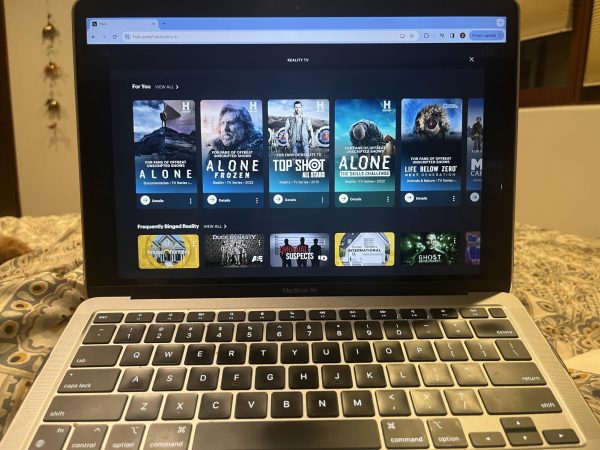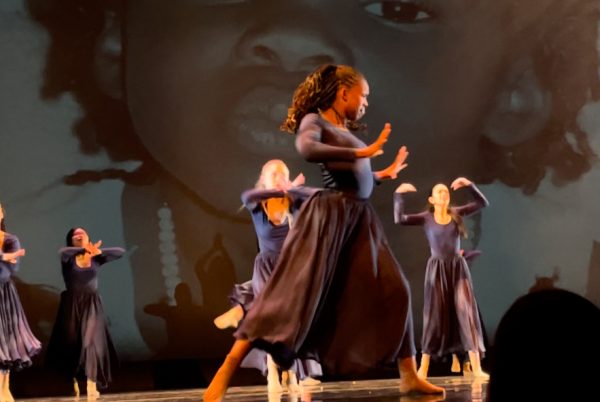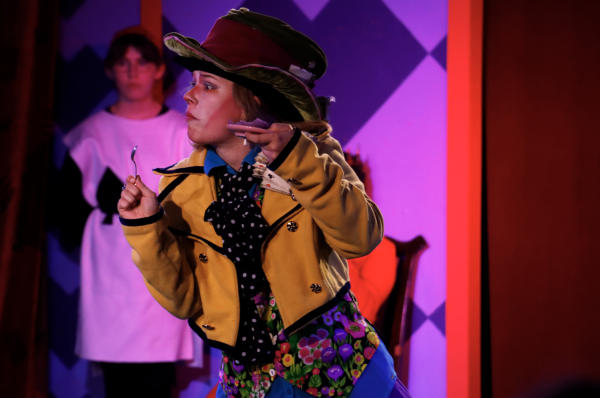Review: Ava DuVernay’s ‘When They See Us’ holds nothing back
Photo credit: Netflix Official Site
A promotional image for Netflix’s “When They See Us” series. The four episode series was directed and co-written by Ava DuVernay and premiered on May 21, 2019.
“When They See Us” is rated TV-MA on Netflix and may not be suitable for children under 17. Common Sense Media recommends the series for children ages 15 and up.
“When They See Us,” the four-episode Netflix series directed and co-written by Ava DuVernay, won two awards at the 2019 Primetime Emmy Awards, including the Emmy for “Outstanding Casting for Series, Movie or Special.”
Actor Jharrel Jerome, who plays Korey Wise in the series, also took home the Emmy for “Outstanding Lead Actor in a Limited Series,” becoming the first Afro-Latinx and Dominican to win this award.
This does not surprise me at all. It is a truly emotive series unlike anything I have seen before.
“When They See Us” tells the story of “The Exonerated Five,” known for decades as the “Central Park Five”: a group of black and brown men including Kevin Richardson, Raymond Santana, Antron McCray, Yusef Salaam and Korey Wise. The series vividly depicts “The Central Park jogger case,” which was based on the assault and rape of Trisha Meili on April 19, 1989. The group was accused, charged, incarcerated and eventually exonerated.
The series first premiered this summer on May 21, 2019, a bold move in the midst of Donald Trump’s presidency and the intense racial tension in the U.S. political climate. The relationship between police and black youth in particular has been a topic of much discussion after the deaths of teenagers such as Trayvon Martin, Michael Brown and Eric Garner.
Opening scenes show the boys’ hobbies and relationships with family, friends and romantic partners when they were the tender ages of 14, 15 and 16. The show covers the entire case in detail: the arrests, investigation, trials, sentencing and prison experience. The audience obviously hears the story of the group, but the series also gives viewers the opportunity to follow the boys’ individual stories. The series ends at their official exoneration in 2014, years after Wise, who served the longest sentence out of the five, got out of prison.
Viewers can learn more by watching the hour-long interview the actual “Exonerated Five” did with Oprah Winfrey. The Netflix special is titled “Oprah Winfrey Presents: When They See Us Now.”
“When They See Us” directly highlights the institutionalized racism at multiple levels of the criminal justice system, evidently taking a political stance. The film even includes an interview Trump did with Larry King in 1989 where he pushed for the death penalty in the form of full-page ads after the five teenagers had been convicted.
DuVernay does not give viewers the luxury of turning off the TV and enjoying the rest of their guilt-free day. The film is raw, emotional and, at times, hard to watch. Viewers should not expect to be eased into anything.
Scenes with the police detectives depict are explicit and do not sugarcoat the brutality the boys faced. According to the plot, the police detectives coerced the teenagers into confessing through violence or with the empty promise that they would be able to go home if they cooperated. When Wise is doing his tape recording for the criminal case record, the frame alternates between two other distinct scenes. In one, Wise is explaining the supposed truth of the assault to Elizabeth Lederer, the prosecutor of the case, on tape in an unsure manner. In the other, two detectives are hitting him, smashing his head into a wall, and repeatedly telling him that all they are trying to do is “get him home,” so he should say what they tell him to say.
In that same episode, prosecutor Linda Fairstein and other detectives are shown in a meeting. The timeline becomes contradictory, so they quite literally begin to move time stamps on the map, rewrite the story, and read into what the boys have said. In the boys’ individual interrogations, the detectives spoon-feed them details, hold them for hours, and state false information as facts to influence their answers. Through this scene, Duvernay highlights the blatant disregard of equitable investigative practices.
These scenes use appeals to morality to evoke indignation, but the appeal to emotion was most impactful part for me.
The most heartbreaking was Jerome’s performance of Wise, who was the only one of the five to serve his entire sentence in an adult prison. Many of Wise’s scenes are in solitary confinement, where he spent most of his time for his own protection. Audio of people from his past such as his mother, older transgender sister and former girlfriend are overlaid over the shot. Eventually, Wise begins to interact with these voices and imagines them in the cell with him. He fantasizes about speaking to his sister, who dies while he is in prison, and walking out of the cell with his former girlfriend to go to Coney Island.
Scenes like this one force the viewer to watch the trauma and psychological damage that the teenagers experienced.
Since its premiere date, people involved in the actual case, such as ex-detective Eric Reynolds and prosecutor Linda Fairstein have spoken up about the inaccuracy of the plot. Nevertheless, as shown in the Oprah interview, the series has created a narrative that is evidently very important to the actual “Exonerated Five.” DuVernay told their stories in a way that was undoubtedly going to cause noise and shift conversations in the media. The show has challenged many people’s perception of the case and sparked discussion across many social media platforms.
When I mindlessly clicked on the first episode on a summer night in, I was definitely not prepared for what I was about to watch. No other film has ever evoked such intense feelings of sadness, fear and anger in me before. It is the type of film that changes and challenges people, which is why I believe it is absolutely imperative to watch.
-
Plot
-
Acting
-
Quality
-
Cinematography
-
Impact
Summary
“When They See Us” is a four episode Netflix series directed by Ava DeVurnay. The series is based on the 1989 Central Park jogger case and tells the story of the “Exonerated Five.”

Celeste Ramirez joined the Oracle as a columnist in 2017 and is now the Multimedia Editor. Her column focuses on diversity at Archer, highlighting the...





![Freshman Milan Earl and sophomore Lucy Kaplan sit with their grandparents at Archer’s annual Grandparents and Special Friends Day Friday, March 15. The event took place over three 75-minute sessions. “[I hope my grandparents] gain an understanding about what I do, Kaplan said, because I know they ask a lot of questions and can sort of see what I do in school and what the experience is like to be here.](https://archeroracle.org/wp-content/uploads/2024/03/grandparents-day-option-2-1200x800.jpg)


























































